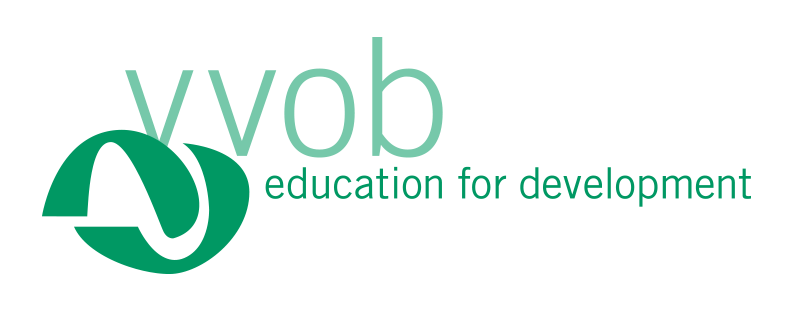VVOB
From Insight to Impact: strengthening systems for effective peer-mentoring
Overview
Location
Uganda
FNL Focus
Literacy & Numeracy
Grades
P3 - P5
Despite progress in primary education enrolment, Uganda hasn't achieved its goal of equipping all learners with foundational skills. Following its successful implementation in India and Zambia, the Ministry of Education and Sports (MoES) has shown interest in contextualizing Teaching at the Right Level (TaRL) in Uganda.
Since 2019, VVOB has worked with the MoES to develop, implement, and monitor the model, focusing on refugee settings, and expanding to Kasese district in 2022. In Kasese, the program supports 80 schools, with funding secured to cover all 260 government-aided primary schools in the district by 2025. There are 18,961 P3-P5 learners enrolled, with 516 teachers trained.
The implementation model constitutes 1-hour of instruction per day (either literacy or numeracy) for 5 days a week over 3 school terms. Literacy instruction is in the local language to help learners acquire competencies in the formal language (English), in line with the Ugandan language policy. The program is implemented through government structures including master trainers and external mentors, selected from primary teacher colleges and district local governments, as well as 80 school-based mentors (deputy headteachers). The TaRL pilot projects have shown promising results, consistently improving learners’ foundational skills.
This success has prompted the MoES to develop and validate a strategy for scaling the implemented TaRL model under the name “UCatchUp” with the support of VVOB and UNICEF.
Implementation research
Research on effective professional development shows sustainable changes in teaching require sustained follow-ups. Mentoring as a follow-up tool promotes changes in instructional practices and reduces turnover. While it is provided by school-based and external mentors, data shows it isn't happening frequently. In some schools’ teachers have set up peer support networks to aid learning in the implementation of UCatchUp with research in Zambia showing collaboration among teachers implementing the TaRL program as an enabler for quality implementation. Implementation research could identify why peer mentoring is successful and how it can be optimized.
In Phase I (Jul–Dec ‘24) we will conduct case studies in schools where it is implemented. Different mentoring models will be investigated in Phase II (Jan-Nov ‘25) and we envision 2 rounds of A/B testing. Modalities selected for testing will be based on findings of Phase I and will be reviewed with the MoES for sustainability.
Ideas include:
Increased decision making for schools in the mentoring process.
Use of social norms to craft positive in-group identity for UCatchUp teachers.
Increased support for school management teams. Since investigated mentoring activities were driven by teachers, we envision using participatory research methods.
A Ugandan researcher will be hired to co-develop the research design and tools as well as conduct and analyse case studies.
In Phase II, we will hire a data collection firm. We envision input from Brink and Laterite on selecting the practices to be included in A/B testing, development of measurement tools, and data analysis. With VVOB working with the MoES on optimizing a scalable model of UCatchUp, these findings on effective peer mentoring will be integrated into this model.
UCatchUp program
Kakula Wandi, Strategic Education Advisor
“We've discovered that at the school level teachers have already established some peer support networks to facilitate learning during uCatchUp implementation.
We’re hoping to understand the different peer mentoring structures that already exist at the school level, and then to test out the different modalities of these, together with the teachers. Then we'll review the findings from that with the government partners, from the Ministry of Education and Sports and the district local governments. We want to find a strong modality that emerges that we can then use to inform scaling efforts.”
Related to VVOB
Resource
BORA cards: 56 cards designed to guide your implementation research
Blog
Going Beyond "What Works" in Implementation Research: Understanding the "How" & "Why
External link
Read more about VVOB on their website
Blog
uBoraBora Portfolio: Improved learning outcomes through targeted tweaks











